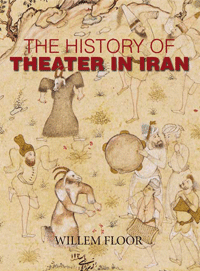
Leaders not martryrs
Why we should care about Akbar Ganji
November 10 , 2005
iranian.com
On April 22, 2000, Akbar Ganji, the prominent Iranian journalist and writer, was imprisoned after publishing a series of articles condemning high-level officials in Iran for their participation in the murder of intellectuals during the 1990s. Almost six years later, Ganji's health is deteriorating and his life on the brink of death after repeatedly being denied either medical leave or care by Iranian officials.
In protest, Ganji began an indefinite hunger strike in June to protest his treatment and inspire Iranian intellectuals and the elite to curb their passivity and advocate the freedom of Iran's true political figures, its writers and journalists. For a while, Ganji was able to garner international attention, which forced the Iranian government to grant Ganji’s wish and allow him access to a hospital. Shortly thereafter, Ganji was not only tortured and ill-treated by Iranian security officers in Milad hospital in Tehran, but immediately returned to prison
 It has been four months since Ganji stopped his hunger strike. In those four months, there have been numerous reports indicating that Ganji is continuously being tortured. Nevertheless, the world's elite and intellectuals continue to remain passive on his release and the release of other political prisoners. In fact, America's major newspapers contain little to nothing about Ganji's plight, but play day-to-day predictions on Iran's nuclear activities. It has been four months since Ganji stopped his hunger strike. In those four months, there have been numerous reports indicating that Ganji is continuously being tortured. Nevertheless, the world's elite and intellectuals continue to remain passive on his release and the release of other political prisoners. In fact, America's major newspapers contain little to nothing about Ganji's plight, but play day-to-day predictions on Iran's nuclear activities.
Like Ganji, hundreds of writers and journalists have been detained in Iran's prisons for their political writings. The government accuses them of "publishing false statements against the regime" and "attacking national security.” These are charges against any of those who publish writings that account for the government's horrific record on human rights and suppression of civil and political freedoms.
In light of the struggles and problems faced by political prisoners inside Iran, what has the Iranian Diaspora done? In September, when Iranian President Mahmoud Ahmadinejad visited the United Nations, whose pictures did our Diaspora waive in front of television stations and millions of television viewers? Did they display the pictures of prisoners inside Iran, dying in jail like Mr. Ganji? Did they express messages condemning torture? Did they show sympathy toward the plight of Iranians in Iran when the media finally paid attention to their words?
Sadly no. A historic moment was lost to historical egoism that is still fixated on the personalities of Iranians living lavish lives in foreign countries.
Akbar Ganji, not Reza Pahlavi or Maryam Rajavi, symbolizes the struggle for human rights and democracy in Iran. His Republican Manifesto has become the hallmark for democratic change in Iran. In an Iran where no one man or woman has risen to lead toward greater liberties and democratization, Ganji has eloquently called for social, rather than personal, heroism. In his own words, "a democratic people build democracies" and that only through non-cooperation and deligitimization of the ruling government can the foundation for democratic institutions take place in Iran. Ganji demonstrates that being a political dissident does not mean renouncing the Islamic faith, but renouncing interpretive conformity.
 President Bush's previous support for Ganji's freedom should be welcomed and more should be asked for. It shows a step in support of Iran's political dissidents rather than America's political hawks. However, until greater opposition is voiced by the world's leaders about human rights in Iran, more and more journalists and writers will be subject to arbitrary detainment, torture, and abuse. President Bush's previous support for Ganji's freedom should be welcomed and more should be asked for. It shows a step in support of Iran's political dissidents rather than America's political hawks. However, until greater opposition is voiced by the world's leaders about human rights in Iran, more and more journalists and writers will be subject to arbitrary detainment, torture, and abuse.
Cooperation with the Iranian government and rapprochement should not be conditioned on Iran's nuclear and terrorism record. It should begin once the Iranian government begins taking sincere steps to promote and protect human rights for all its citizens. Like South Africa's detainment of political prisoners during Apartheid, the Iranian government should similarly feel the brunt of global cooperation in universalizing the respect for human rights. When the global community begins taking these steps Iran could evolve to the level where people like Akbar Ganji will be its leaders rather than its martyrs.
About
Nema Milaninia is the executive director of the International Studies Journal (www.isj.ir) and editor of the Iranian Truth group blog (Iraniantruth.com).
|